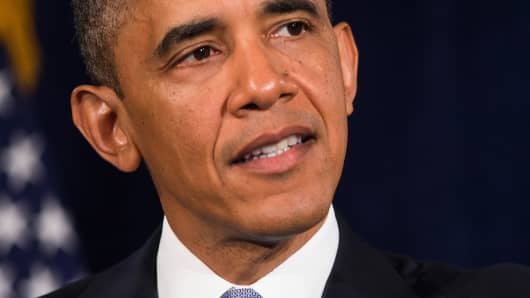The Obama administration's decision to delay the health law's mandate that larger businesses offer workers health insurance does not strike at the core of new system. But it underscores the administration's complex challenge in implementing it, and emboldens opponents trying to block it.
What the administration deferred was the law's requirement that American businesses with at least 50 full-time employees offer health insurance or face a penalty of $2,000 per worker. Because most businesses are smaller than that, and most larger businesses already offer coverage without the mandate, the vast majority of American business owners and workers alike will not be directly affected.
Moreover, the delay does not apply to the law's central features: the requirement that individual Americans themselves obtain health coverage, and creation of insurance marketplaces where they can do so on better terms than insurance companies now offer. Beginning Jan. 1, 2014, White House officials say, that "individual mandate" kicks in as scheduled—and won't be delayed.
(Read More: Here Are Winners and Losers in Obamacare Delay)





